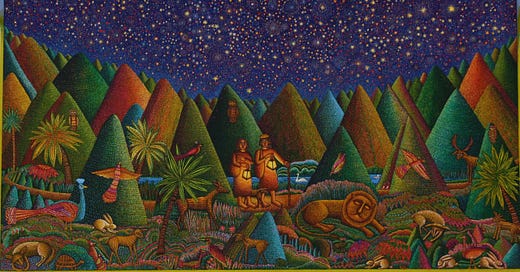The Lord is my shepherd;
I shall not be in want.He makes me lie down in green pastures
and leads me beside still waters.He revives my soul
and guides me along right pathways for his Name's sake.Though I walk through the valley of the shadow of death,
I shall fear no evil;
for you are with me;
your rod and your staff, they comfort me.
Y…





